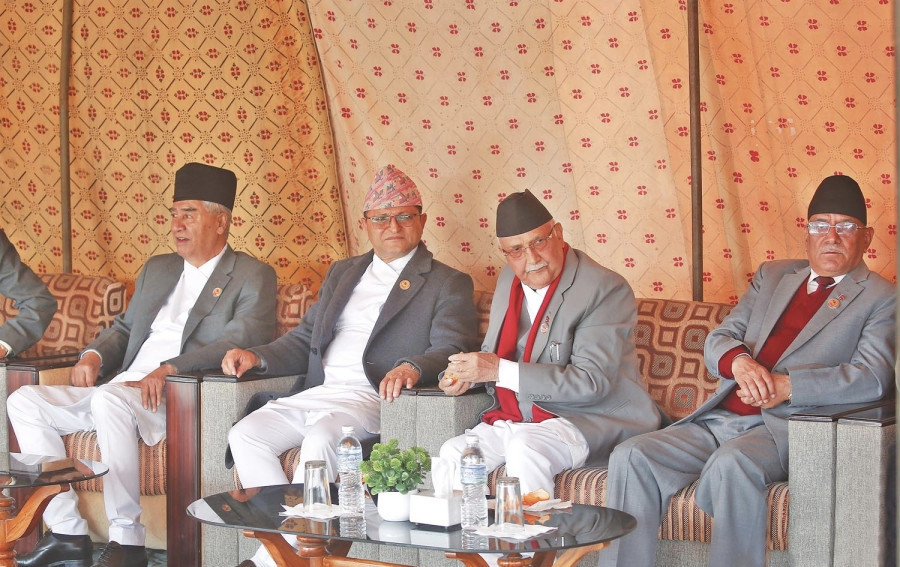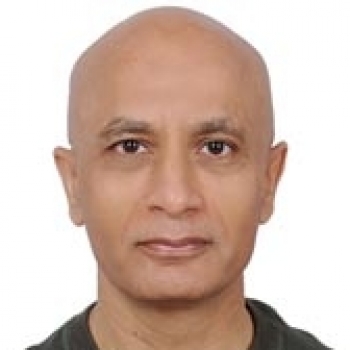Columns
Missed opportunity for old parties
The major parties are wasting a chance to reform themselves and move with the times.
Paban Raj Pandey
How the mighty have fallen! The purpose of this article is not to kick the ones on the ground, rather to discuss the pros and cons of the fallen ones getting back on their feet and leading their respective parties, and the cost associated thereof—for themselves, their parties and the nation. In Nepal’s history, there are no parallels to what occurred on September 8-9—the number of youth that the KP Oli administration gunned down, the massive destruction of physical properties that followed, the Oli resignation, the dissolution of the lower house, the formation of a caretaker government under Sushila Karki, former Supreme Court chief justice, and attempts by the major party leaders to become relevant again.
If the leaders of the three major parties—Sher Bahadur Deuba of the Nepali Congress, Oli of the Communist Party of Nepal (Unified Marxist-Leninist) and Pushpa Kamal Dahal of the Maoist Centre—rightly felt the pulse of the sentiment of the Gen Z youngsters that took to the streets demanding an end to rampant corruption and a lack of good governance, then they should have wisely hung up the gloves, making way for lower-echelon leaders to take the reins. Unfortunately, this is not where things seem headed. Not only are the septuagenarians resisting the voices for change from within their parties, but they are also dreaming up weird statements and made-up stories to trivialise the uprising.
In light of the evolving political landscape, of the three, Dahal (71 in December) thus far is looking the most flexible, as he has agreed to dissolve the central committee to hold a general convention within a few months; that said, as soon as he came out of hiding, he was quick to ill-advisedly gloat about how he was in constant touch with President Ram Chandra Paudel, the Army Chief and other parties to save the Constitution and the presidency. Oli (74 next February), who spent 10 days under Army protection post-resignation, shows no remorse and is in no mood of bowing out as UML leader. Nor is Deuba (80 next June), who is fighting tooth and nail against internal pressure to step down as party president.
Bidding adieu at peak
There is nothing wrong with retirement. The wise ones, in fact, retire when they are at their peak. Oli, Deuba and Dahal, among others, are the ones who do not waste a second talking about their roles in bringing about the end to the party-less Panchayat system, followed by the abolition of the monarchy. They were the Gen Z of their time, and their contribution deserves a place in history. But no one should expect to sit on one’s laurels forever. There is this thing called overstaying one’s welcome. If, after 35 years of the onset of multiparty democracy, people are still protesting in the streets wanting a change in governance and a better future, then this sends an explicit message that the system is decaying.
The average Nepali cannot be blamed for wanting to puke seeing all this. Between September 1995 and December 2022, Deuba became prime minister five times, and he was eyeing a sixth term beginning next July if the power-sharing agreement with Oli, signed in July 2024, lasted until the 2027 general elections. Similarly, between October 2015 and September 2025, Oli became prime minister four times, and, between August 2008 and July 2024, Dahal became prime minister three times. How many is too many? How many opportunities do these leaders deserve to have before they can prove their worth? The Gen Z revolt is emphatically saying enough is enough and that it is time they step aside.
The sad part in all this is that the old guard still has not grasped the severity of the situation—that they are now being looked upon in more disdain than before in the changed political context. The blood of the most recent martyrs is barely dry, and President Paudel is out publicly bragging how he made a great effort to save the 2015 Constitution and the system, even as Oli pooh-poohs the Karki administration while refusing to own up to the September 8 massacre committed by his administration. The dichotomy in all this is that Karki cannot legally become a prime minister under the 2015 Constitution, which is kept alive, and yet her government is born out of the Gen Z protests that speedily toppled the Oli government.
No empires rule forever
Ideally, in such a situation, the Army should have taken over, ensuring the safety of both people and property, do a complete overhaul, hold an election as quickly as possible and then hand over power to the people. But this is not how things evolved—perhaps understandably so given the geo-political tug of war Nepal finds itself in. Concurrently, the erstwhile leaders succeeded—thus far—in robbing the Gen Z movement of their agenda. Elections have been announced for March 5 next year and will have taken place 20 months ahead of schedule. The Oli-Deuba-Dahal troika has been emboldened to conclude that their one-time empire of corruption and bad governance has taken a hit but not a knockout punch.
History is littered with fallen empires that fell under their own weight owing to excessive arrogance and misguided decisions. No powers have ruled forever—from the Roman Empire to the British Empire to a bipolar world dictated by the former Soviet Union and the United States to a multipolar world including China, change is the only constant. Here at home, the 104-year Rana rule came crashing down in 1951. The subsequent multi-party democracy did not last very long, as in 1961 King Mahendra introduced the one-party Panchayat system, which was overthrown in 1990, followed by the abolition of the monarchy in 2008. Whenever a system has failed to deliver results, Nepalis have risen up.
This occurred again last month. At present, things look calm, but there could be strong undercurrents beneath. The major parties are wasting an opportunity to reform themselves and move with the times. The best thing that could happen is mutiny from within the parties to get rid of their current leadership. Else, the old leadership will be sent packing at the ballot. The risk is that the various Gen Z groups cannot coalesce to form a strong electoral alliance, and they will be unable to sweep the elections; even worse, the status quo fare much better than expected, and they will view this as people’s mandate to continue their decadent past. This will have nothing but laid the foundation for a second uprising.




 20.53°C Kathmandu
20.53°C Kathmandu















